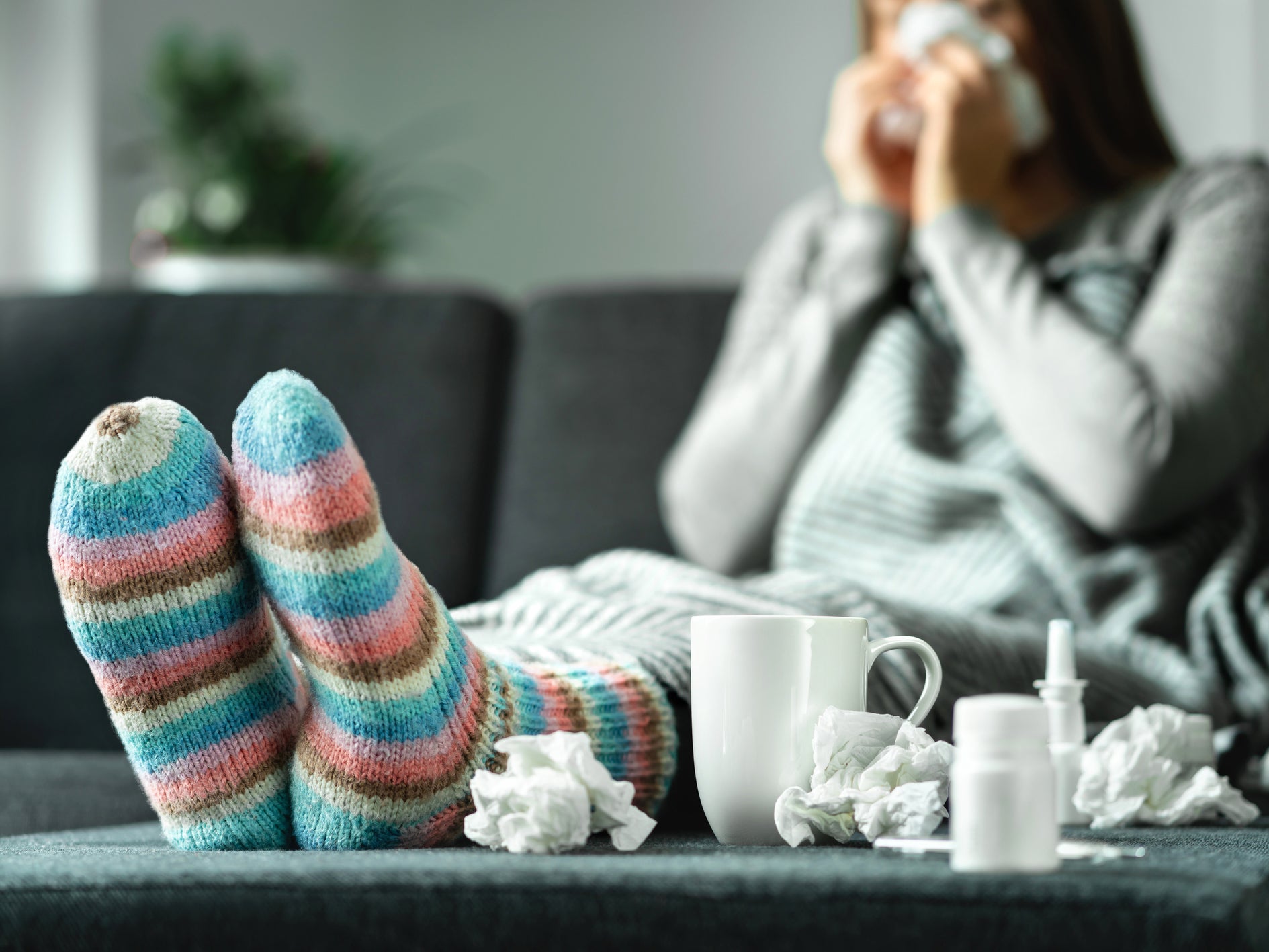Two-thirds of Americans ‘avoid calling in sick for fear of punishment’
And more than half feel pressured to work while ill, according to new survey

Your support helps us to tell the story
From reproductive rights to climate change to Big Tech, The Independent is on the ground when the story is developing. Whether it's investigating the financials of Elon Musk's pro-Trump PAC or producing our latest documentary, 'The A Word', which shines a light on the American women fighting for reproductive rights, we know how important it is to parse out the facts from the messaging.
At such a critical moment in US history, we need reporters on the ground. Your donation allows us to keep sending journalists to speak to both sides of the story.
The Independent is trusted by Americans across the entire political spectrum. And unlike many other quality news outlets, we choose not to lock Americans out of our reporting and analysis with paywalls. We believe quality journalism should be available to everyone, paid for by those who can afford it.
Your support makes all the difference.Two-thirds of American workers have avoided calling in sick for fear of reprisals from their employer, a poll suggests.
The survey of 2,000 US workers found 67 per cent had done this out of concern they would be reprimanded – a huge increase over the 57 per cent who admitted to the behaviour in a similar poll last August.
In addition, some 41 per cent of respondents said they always or often worked while sick because they could not afford to take time off. The inflation crisis is exacerbating the problem, with 67 per cent saying it had made them less likely to take an unpaid sick day.
Inflation has combined with Covid-19 and a surge of layoffs to make Americans more cautious about taking sick leave, the research suggests.
People of colour were found much less likely to call out from work than their white counterparts. Latina women, for example, were more hesitant than white women to take a sick day from work (71 per cent versus 52 per cent) due to ongoing staff cuts.
Overall, layoffs throughout the US have made 62 per cent of employees more reluctant to take a sick day, even if one is available to them.
Conducted by OnePoll on behalf of Theraflu, the survey discovered two in three people had avoided calling out sick from work for fear of being reprimanded by their employer or company but that this concern was more pronounced among Latina women. Seventy-seven per cent admitted doing so compared to 60 per cent last year.
Age was also found as a factor with Americans aged between 58 and 76 less likely than their younger counterparts – those aged 18 to 25 – to take time off from work when sick, due to financial implications (51 per cent versus 36 per cent).
Pollsters also found that 63 per cent of employees felt guilty for taking sick time due to staff shortages. Additionally, 60 per cent of those polled felt their bosses actively discouraged them from calling out to take care of themselves – a figure 20 points higher than in 2021.
“Our research continues to show that many Americans are still not taking the proper time to rest and recover when they’re sick due to financial barriers and the cultural stigmas associated with sick days,” said Sameer Rabbani, of consumer healthcare firm Haleon, which produces Theraflu.
“We’re fighting to create a flu safe world and a large part of that is ensuring people can take the sick time they need.”
Even with many employers offering work-from-home options due to the Covid-19 pandemic, the poll results revealed a stigma in taking sick days remained, even on non-commute days.
Compared to 2021, no change was seen in the number of people who could work from home and felt obliged to work remotely rather than take a sick day, unless they had tested positive for Covid-19 (68 per cent).
Caring for others was also a factor in employees taking sick time from work. Compared to last year, Latina women (55 per cent versus 18 per cent) and black women (36 per cent versus 23 per cent) were much more likely to take three or four sick days to care for a loved one.
“Now, more than ever, it’s important to take care of yourself for your own health, as well as that of your loved ones,” Ms Rabbani said. “The ability to rest and recover should be a right – not a privilege.”




Join our commenting forum
Join thought-provoking conversations, follow other Independent readers and see their replies
Comments